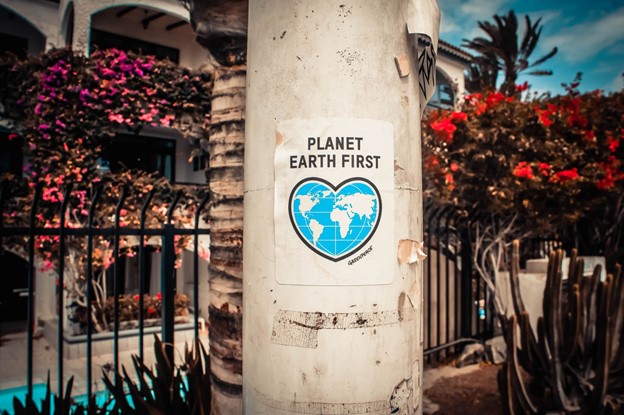
Change is the only constant in the world of business. However, one subject that continues to control the headings is blockchain. Blockchain technology has been praised for its ability to streamline operations and reduce costs while also providing transparency and security within a business environment.
One typically ignored element of this cutting-edge technology is how it can assist shape the future of our world too. In fact, there are many ways in which blockchain technology can be used to solve environmental issues on a global scale.
How Blockchain Can Help Save The Environment
The environment is dealing with a number of severe obstacles. From air pollution to climate change, the planet is being affected in many negative ways that are having an impact on our health and the future of our planet.
All around the world, individuals are ending up being more mindful of these concerns. More and more people are working to find solutions for each of these problems, but there is one area where blockchain technology can make a huge difference: the environment.
For one, blockchain can be utilized to contribute to ecological charities in brand-new and innovative methods. For instance, Next Earth is a virtual replica of Earth on BSC, in which users can buy NFT land tiles from the Statue of Liberty to the White House to farmland. 10% of the worth of those purchases goes to ecological causes. In the world’s first Initial Tile Offering, Next Earth raised over $1.3 million, which means that over $130,000 was donated to charities like Amazon Watch and The Ocean Cleanup.
This implies that if you were to end up being a metaverse landowner on Next Earth, and purchase $100 of virtual realty, $10 will go to ecological causes.
Fight Climate Change
Blockchain also has the potential to help fight climate change, in ways besides strictly donating to charities.
For example, the Blockchain Coalition introduced a tradable carbon credit token that might permit more comprehensive involvement in carbon markets and offer financiers direct exposure to brand-new possession classes. This type of innovation could reduce CO2 emissions across all sectors and improve air quality in cities where pollution levels are particularly high.
The advantages of utilizing blockchain to safeguard the environment exceed simply assisting individuals feel excellent about contributing their cash towards a deserving cause. Blockchain can also help save the planet by making it easier for companies to track their impact on the environment. The natural development from returning to safeguarding nature is discovering methods to track your effect in order to make modifications where they matter most: within your company and market.
Incentivizing Recycling and Reducing Waste
Further, blockchain has been used to incentivize and track recycling, with startups like Plastic Bank. Plastic Bank utilizes blockchain to make sure openness in recycling, tracking and generating income from the collection of an amazing 1 billion bottles of plastic.
Plastic is a huge environmental concern, and using blockchain to track and incentivize recycling can go a long way towards reducing this issue.
In addition to enhancing the environment, blockchain can likewise help in reducing waste. With current methods of shipping food, for example, nearly half of food produced in the US is never eaten. This implies that in order to stay up to date with worldwide need for food, we would need to significantly increase production. Not only would this require more land and natural resources, but it would also mean an increase in pollution from packaging.
Blockchain has the possible to decrease lost food by enhancing supply chain management. In fact, IBM reports that blockchain-based supply chain tools could reduce food loss and waste by up to $120 billion annually.
Ultimately, while blockchain has some of its own issues to fix, especially when it concerns the effectiveness of agreement systems, these are being enthusiastically taken on. In the meantime, blockchain-based technologies are being used in a variety of ways to shape the future of the Earth, from NFT-based charitable contributions to tracking plastic waste or even optimizing food supply chains.


















